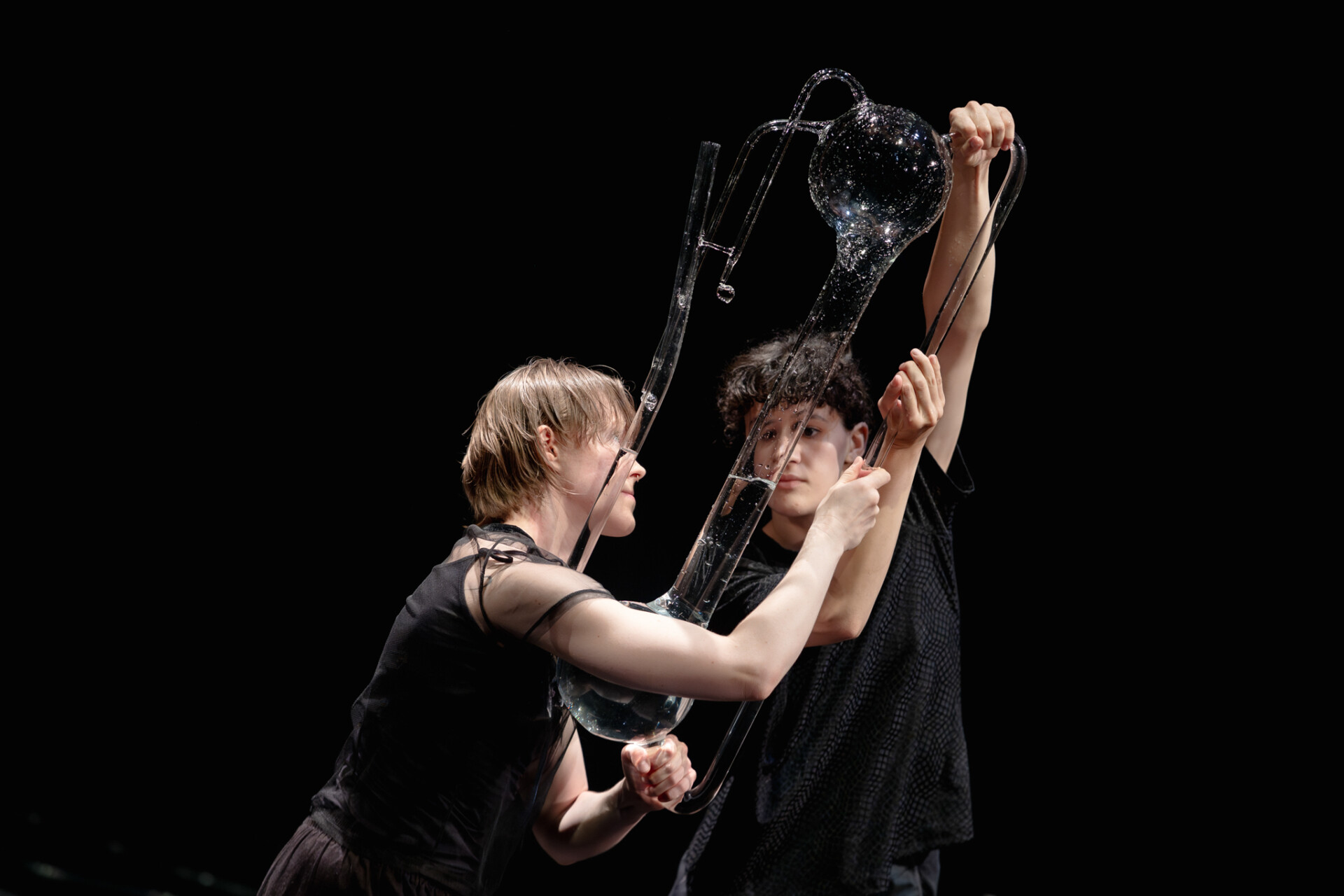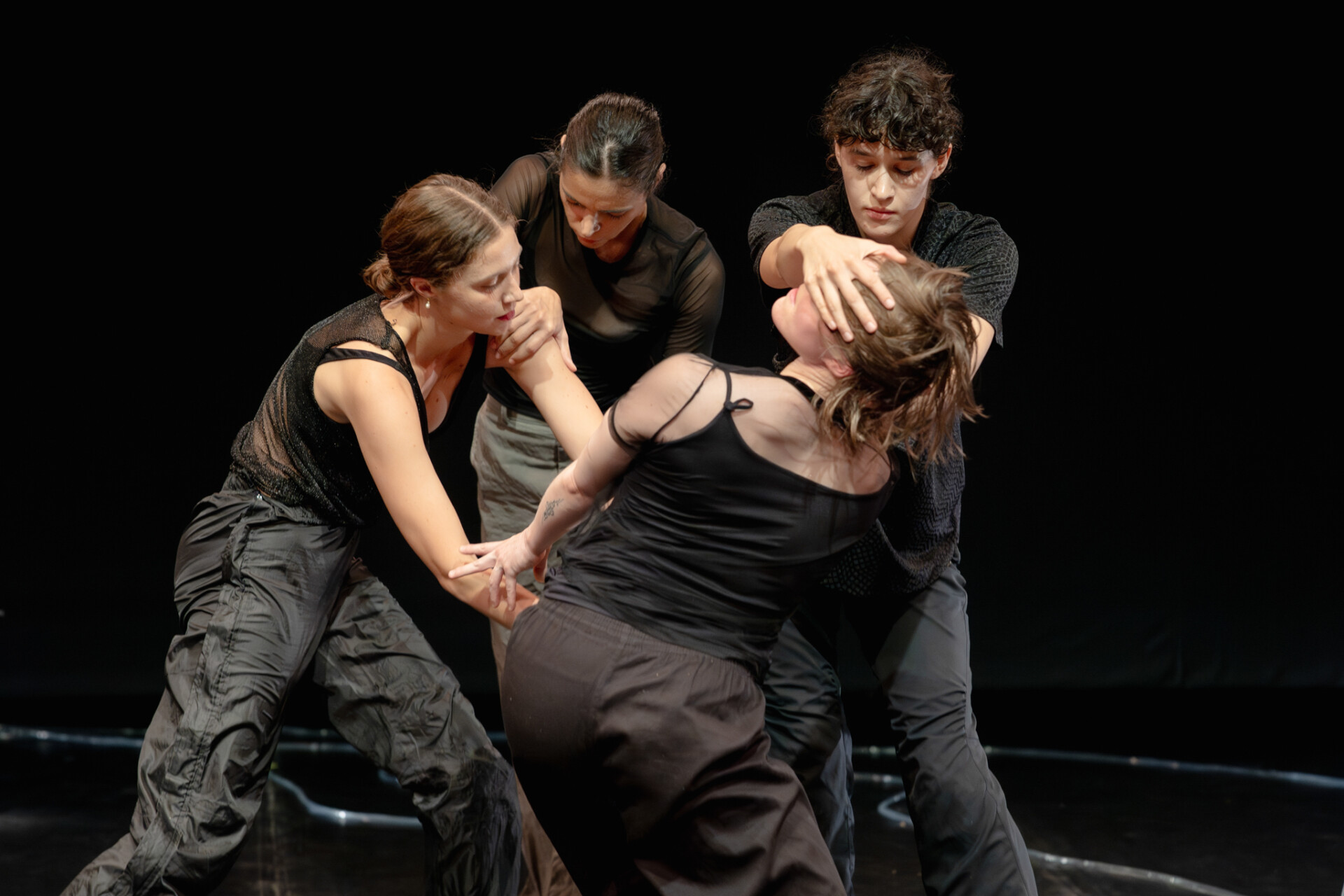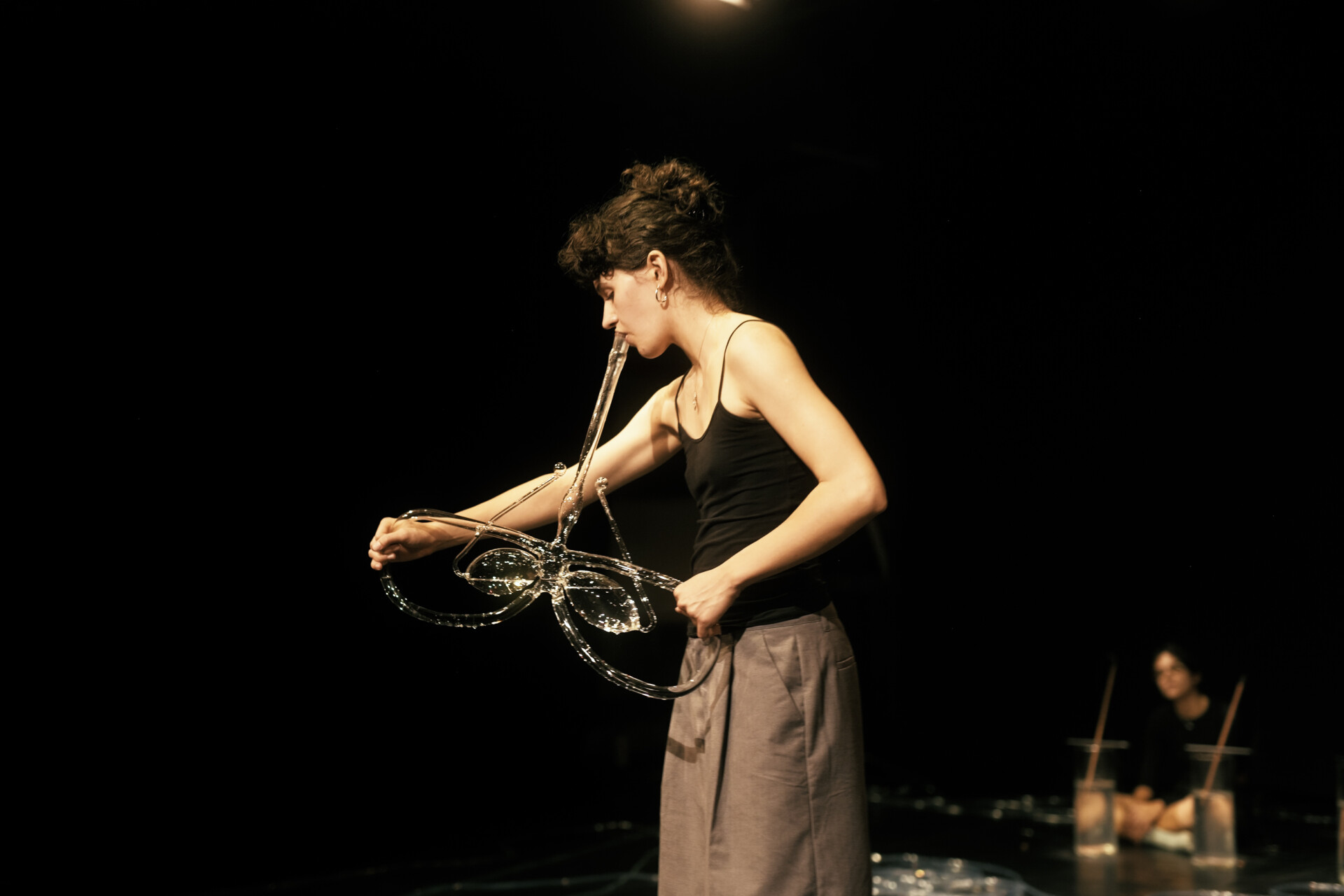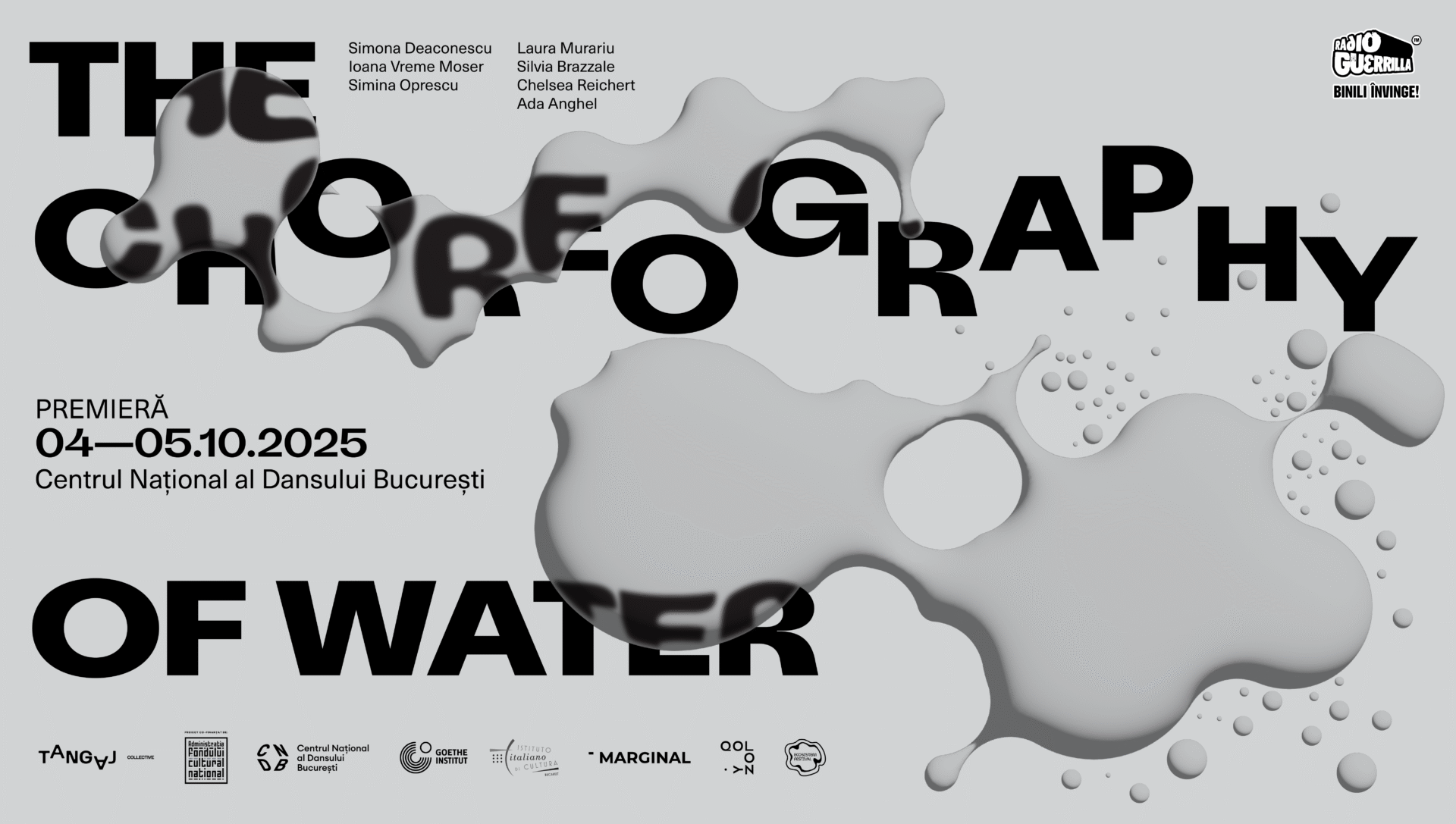
The Choreography of Water asks: what futures might emerge if, instead of controlling water, we learned to move with it?
Bucharest, September 16, 2025. Tangaj Collective announces the premiere of The Choreography of Water, created by an artistic trio consisting of choreographer Simona Deaconescu, visual artist Ioana Vreme Moser, and sound artist Simina Oprescu. The Choreography of Water explores the movement of water, from the invisible flows within the body to those that shape the planet, and is performed by three dancers who move within a unique set design consisting of transparent glass sculptures through which water continuously circulates. The first performances will take place on October 4 and 5 at the National Center for Dance in Bucharest (CNDB).
Tickets are available for purchase online HERE.
The cast of the show consists of four young dancers, who were selected following an international workshop-audition attended by 45 artists from 12 countries: Silvia Brazzale (Italy), Chelsea Reichert (USA), Ada Anghel, and Laura Murariu (Romania). On stage, they interact with fluid objects created by Ioana Vreme Moser—transparent glass structures and tubes that set 50 liters of water in motion. These hybrid objects, with shapes resembling organs or underground waterways, act as “components” of a fluid computer, where the speed, resistance, and oscillation of water currents generate sound. Sometimes the dancers initiate the interaction, triggering flows, loops, or blockages through touch and movement; other times, the objects themselves provoke the dancers, releasing sounds and flows that demand a response. The result is a constant exchange — always in motion, never silent. The immersive sound universe is created by Simina Oprescu.
The continuous movement of water in nature was the basis for the artistic vision, as choreographer Simona Deaconescu explains: “In the human body, water circulates continuously—through blood, lymph, tears, sweat, menstrual fluid. These flows keep us alive, regulate our temperature, help us heal, feel, and procreate. If they are blocked or diverted, the entire system collapses. The same thing happens to the planet: when rivers are dammed, lakes emptied, seas diverted, or waters relocated, the Earth’s circulatory system becomes unbalanced, and the connections between all forms of life are broken. Our show constantly alternates between micro details and macro perspectives, resulting in a speculative image of a future hydrological cycle in which humans no longer try to control water, but move with it.” The creative process for The Choreography of Water began in March–April 2025 at CNDB with an interdisciplinary laboratory, continuing in July with a site-specific development stage in Copenhagen as part of the European platform In Situ. At the end of August, the artists organized an open rehearsal, in which the audience was invited to actively participate in the creative process.
More details about the show and upcoming performances – https://www.tangajdance.com/cowevents
Choreographer Simona Deaconescu works in Bucharest between performance, installation, and speculative research, exploring themes such as marginality, feminism, virtuality, and the sensation of existing between times, histories, and realities, with works presented in Europe, as well as Mexico and Canada. Ioana Vreme Moser, based in Berlin, was twice awarded the Prix Ars Electronica in 2025 for her works infused with experiments in electronics and sound, while Simina Oprescu, also based in Berlin, focuses on acousmatics and the sonification of data.
The project is produced by the Tangaj Collective Association in co-production with the National Center for Dance Bucharest, co-financed by AFCN—the National Cultural Fund Administration, and supported by the Goethe-Institut Bucharest, the Italian Cultural Institute in Bucharest, and benefits from the scientific and logistical contribution of the NGOs Marginal and Qolony, as well as the Ecosystem Festival.
Media partner: Radio Guerrilla
The project does not necessarily represent the position of the National Cultural Fund Administration. AFCN is not responsible for the content of the project or how the results of the project may be used. These are entirely the responsibility of the funding recipient.
—
For more details:
Ioan Maxim
0726 18 58 12




